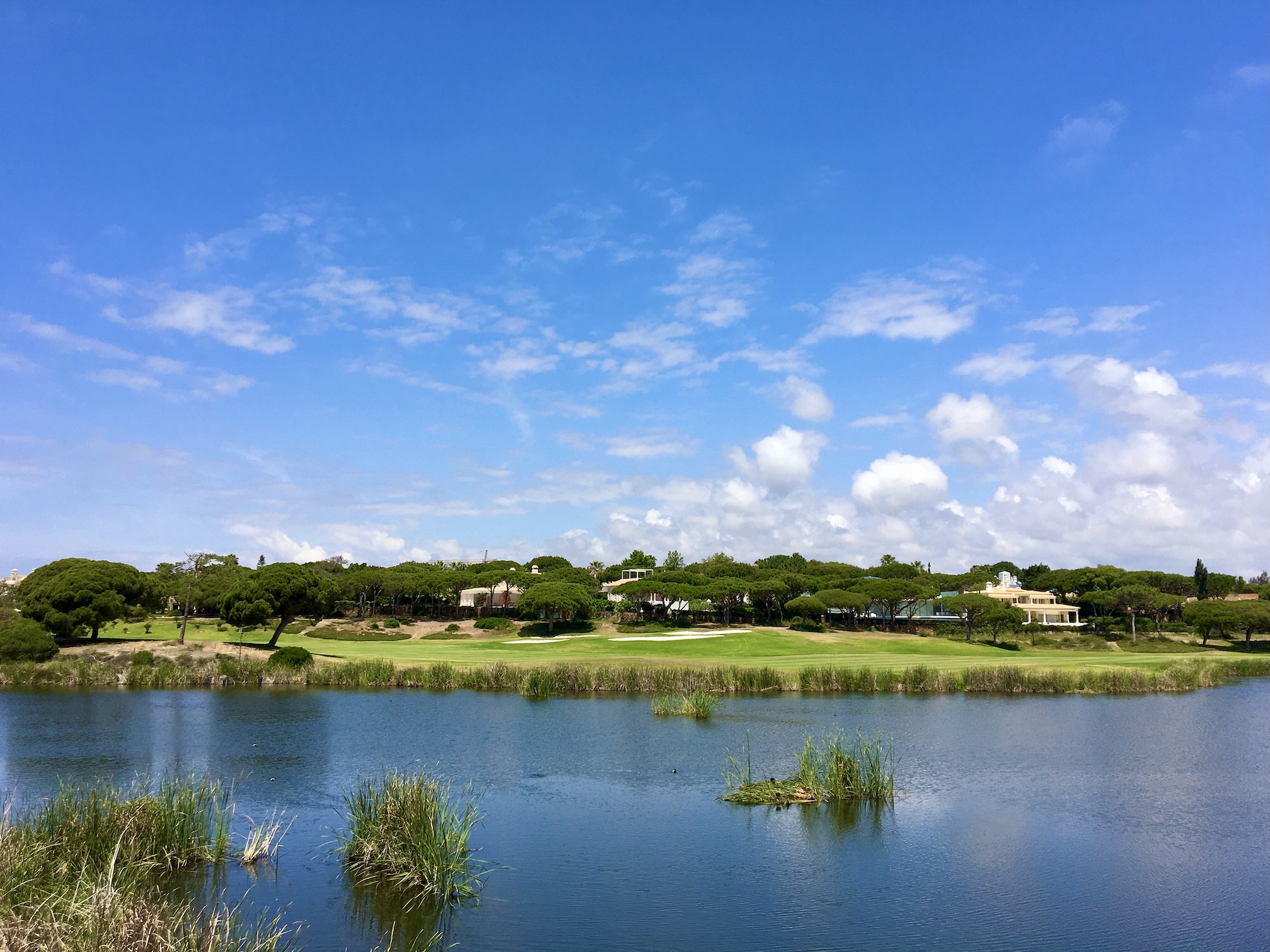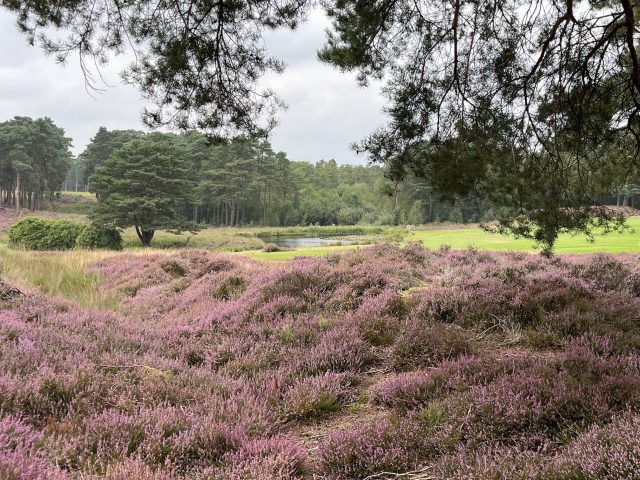
Golf Environment Awards 2025: Celebrating Sustainable Innovation in Golf
In the face of mounting environmental concerns, the golf industry is striving to promote biodiversity, conservation, and sustainability. This commitment is reflected in the prestigious Golf Environment Awards (GEAs), which, since their inception in 1995, have celebrated the outstanding contributions of golf clubs worldwide in eco-conscious initiatives. Now, as the GEAs prepare for their 30th anniversary, the 2025 finalists showcase a commitment to ecological stewardship, innovation in habitat creation, and exemplary resource management.
The Mission of the Golf Environment Awards
The GEAs aim to recognise golf clubs and individuals who have demonstrated a commitment to preserving and enhancing the natural landscapes in which they operate. These awards serve as a catalyst for change, encouraging golf clubs to integrate environmentally-friendly practices into their operations. Each year, the GEAs recognise exemplary work in promoting biodiversity, conservation, and habitat creation, as well as effective waste, water, and energy management.
Richard Stuttard, Director at STRI Group, commended the efforts of golf clubs this year, noting how “the standard of entries is high every year,” and expressing delight in seeing new clubs participate. Stella Rixon, a Senior Turfgrass Agronomist at STRI, echoed this sentiment, praising the dedication of greenkeepers and clubs whose efforts often go uncelebrated.
The 2025 Award Categories and Finalists
This year, entries were submitted across six unique categories, each focusing on a different facet of environmental stewardship. The categories were assessed by STRI Group experts, who shortlisted finalists based on criteria tailored to each category.
Conservation Champion Award
The Conservation Champion Award celebrates individuals who have significantly contributed to environmental management and biodiversity on their courses. These efforts create a positive impact on the landscape and surrounding ecosystem.
- Matthew Grainger – Brampton Golf Club
- Andy Reason – North Hants Golf Club
- Chris Greely – Royal Dublin Golf Club
- Adam Olliver – Weybrook Park Golf Club
Ecological Project of the Year

This category recognises golf clubs that have successfully implemented ecological projects with clear objectives, positively impacting the environment through increased biodiversity and conservation.
- Fife Golf Trust
- Formby Ladies Golf Club
- Hinckley Golf Club
- Leckford Golf Club
Operation Pollinator Award

Awarded to clubs that have achieved exceptional results in creating and managing ecological habitats, particularly for pollinator species.
- Bamburgh Castle Golf Club
- Goring and Streatley Golf Club
- North Hants Golf Club
- Warren Golf Club
Sustainable Project of the Year

This award honours golf clubs that have initiated sustainable projects with demonstrable environmental benefits, showcasing best practices in eco-friendly resource management.
- Annahill Golf Club
- Bowring Park Golf Club
- Kingarrok Golf Club
- Bidston Golf Club
International Environmental Golf Course of the Year
Open to non-UK golf courses, this category acknowledges outstanding management across areas such as nature conservation, turf maintenance, waste reduction, and water conservation.
- Afriyea Golf Academy
- Camiral Golf & Wellness
- Minthis Golf Club
- Mjölby Golf Club
- Quinta do Lago Resort
UK Environmental Golf Course of the Year

This award highlights UK-based golf courses excelling in environmental management practices, from conservation to resource efficiency.
- Colmworth Golf Club
- North Hants Golf Club
- West Sussex Golf Club
- Royal Mid-Surrey Golf Club
Criteria for Judging and the Upcoming Ceremony
The judging process will culminate in a final evaluation in November, conducted by a panel of representatives from organisations including The R&A, Aquatrols, BIGGA, Jacobsen, Syngenta, and Tillers Turf. This rigorous review will determine the ultimate winners in each category, who will be honoured at the awards ceremony on 23rd January 2024, at The Crown Hotel in Harrogate.
Winning clubs and individuals receive a £750 grant, intended to further support their environmental and ecological initiatives. Additional prizes include an agronomic consultation, access to the Foundation Award in Amenity Horticulture course, and BIGGA membership for the Conservation Champion award winner. Furthermore, winners in the UK and Ireland receive digital promotional materials to help share their achievements across various platforms.
Key Highlights of the Finalists’ Environmental Initiatives
The finalists in each category exemplify best practices in eco-conscious golf course management. Their initiatives range from ambitious biodiversity projects to targeted efforts in resource conservation.
- Promoting Pollinators: Operation Pollinator finalists like Bamburgh Castle Golf Club have focused on creating habitats to support bee populations and other pollinators. By planting native wildflowers and reducing pesticide use, these clubs foster healthy ecosystems that benefit a wide array of wildlife.
- Sustainable Resource Management: Sustainable Project of the Year nominees such as Kingarrok Golf Club have implemented innovative water-saving techniques, aiming to reduce their environmental footprint by minimising water and energy usage.
- International Excellence: International Environmental Golf Course finalists, including Minthis Golf Club in Cyprus, demonstrate exemplary practices in waste reduction and turf maintenance. Their projects offer an inspiring example of how golf courses can integrate sustainability into their operational blueprint.
- Conservation Efforts: The Conservation Champion nominees have led initiatives that bring measurable improvements to their local environments. For example, Matthew Grainger at Brampton Golf Club has spearheaded efforts to increase native flora and fauna, contributing to greater biodiversity on the course.
Encouraging Global Participation in Environmental Stewardship
The GEAs’ outreach extends beyond awarding top performers, encouraging all golf clubs, regardless of size, to join the movement towards environmental responsibility. This inclusivity is key to fostering a broad-based commitment across the industry, encouraging clubs of varying sizes and resource levels to participate and embrace eco-friendly practices.
One significant aspect of the GEAs is that they are free to enter, eliminating financial barriers and motivating more clubs to apply. By sharing case studies of successful projects, the GEAs aim to inspire clubs globally to follow suit, amplifying golf’s positive impact on climate change mitigation and biodiversity conservation.
STRI Group’s Role in Golf Sustainability
The STRI Group has been instrumental in advancing the environmental agenda in golf. Founded in 1929, STRI is a global consultancy specialising in the design, engineering, and management of sports facilities with an emphasis on sustainable solutions. STRI’s involvement in the GEAs highlights its commitment to fostering environmentally sound practices, underpinned by scientific research and innovation.
Alongside environmental planning, STRI’s work spans several areas, including urban environmental design and green infrastructure projects, which seek to address the challenges posed by climate change and urbanisation. By promoting sustainable practices through the GEAs, STRI champions golf’s potential to be a force for ecological preservation and a model for other industries to follow.
Looking Ahead: The Future of Golf and the Environment
As the GEAs prepare for their landmark 30th anniversary, they underscore a transformative period for golf. The ongoing climate crisis and the call for increased biodiversity have made environmental stewardship an imperative, not just an option. Golf courses worldwide are increasingly seen as valuable green spaces, capable of supporting ecosystems, conserving resources, and educating the public on sustainability.
The 2025 GEAs illustrate that golf is not only embracing this role but is also innovating ways to balance sport with environmental responsibility. Whether through pollinator support, sustainable turf management, or reducing water use, these awards showcase how golf courses can be exemplary models of environmental consciousness.
As more clubs join the ranks of eco-conscious golf courses, the GEAs will continue to recognise and promote these efforts, inspiring the next generation of sustainable golf initiatives. In doing so, they reinforce the idea that golf can indeed “green” the future of sport.
In summary, the Golf Environment Awards 2025 finalists exemplify how clubs can harmonise the game of golf with nature. Their projects signal a promising path forward, where golf courses worldwide become oases of biodiversity, conservation, and sustainability.


